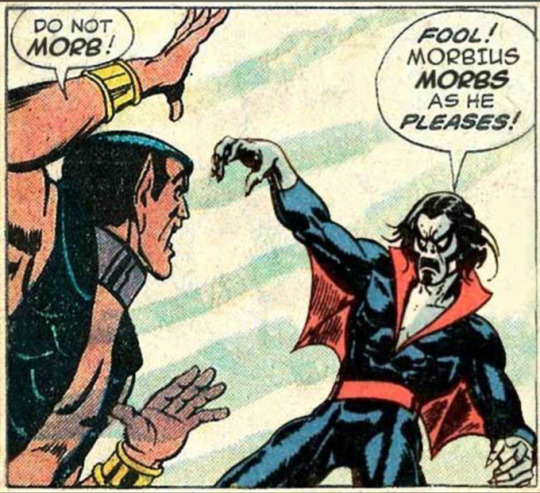Photo
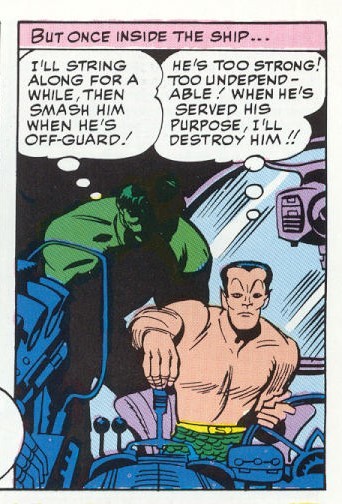
365 Days with Namor
Day 107
Namor and Hulk!
Best Buddies Since 1963!
21 notes
·
View notes
Text
Amazing how The Defenders are made up of a Pansexual Sea Prince, a Bisexual Valkyrie, a Queer Wizard, a Shiny Space Twink and Hulk. (Bruce Banner is the only token straight.)
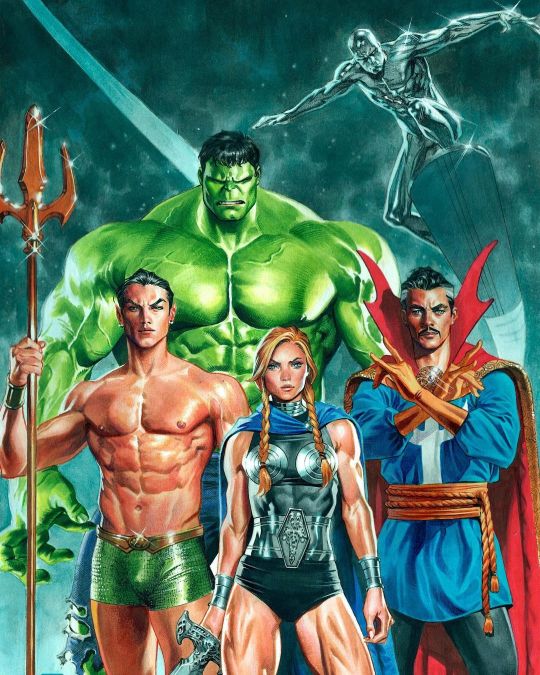
172 notes
·
View notes
Photo
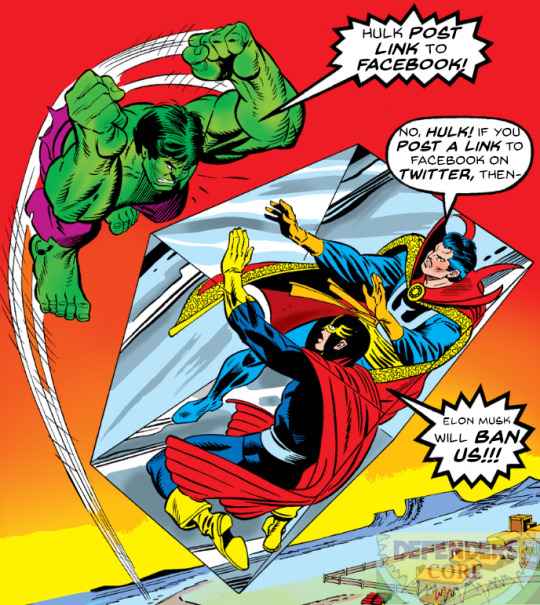
#defenders#marvel's defenders#defenders-core#marvel#hulk#doctor strange#nighthawk#twitter#elon musk#facebook
6 notes
·
View notes
Text
My Black Panther 2 Review
So I saw Black Panther 2 last night and here's some thoughts on it. Spoilers ahead:
Just making a sequel to Black Panther must have been a massive undertaking. The first film's release was an undeniable cultural moment. It shattered tons of box office records, cultivated an audience entirely separate from theatergoers guaranteed to attend Marvel movies, and catapulted Wakanda to an international household name. Anecdotally, I worked in a movie theater when it released, and not only was it massively busy for several weeks, but probably 60% of the audience were people who never went to superheroes before. I vividly remember one such customer, an elderly Black woman, brought her grandson to see the movie four times and went on her own another three times. She'd never seen a superhero film before, but she went to see Avengers: Infinity War opening weekend. She was sobbing uncontrollably as she left Infinity War, inconsolable at the death of "King T'Challa." I've often wondered how she responded to the news of Chadwick's death.
I think it's easy to say that Black Panther was popular simply because it was a major superhero film with a Black cast, but it's important not to discount how much of its success was a direct result of Ryan Coogler's writing and direction. We had plenty of those customers come out in a big way for other Black-led films, but not day after day for weeks like they did for Black Panther. The movie didn't cross a billion dollars on opening weekend. The real draw of Black Panther was its passion and artistry. Real craft went into the set design, costuming, and cinematography, and its use of symbols and theme was clever, poignant, and deft. If you watch Coogler's director's commentary, or any of his scene breakdowns, it becomes clear just how much consideration and vision went into every detail of the movie, and how deliberate a filmmaker Coogler really is. Black Panther was a better film than most superhero movies because it was made like a film moreso than most superhero movies. Most of its flaws, too, are born of the limitations of being an MCU film. Its visual effects were often shoddy due to budgetary restrictions and strict release deadlines, its need to function within the justifying ideology defanged some of its more radical politics, and its function as a piece of a larger cinematic universe divided some of its focus.
The sequel, then, really had to be a sequel to two different movies: a superhero movie in the MCU, and a movie at the heart of a cultural moment almost entirely unmoored from superheroes. And, because of the unimaginable tragedy of Chadwick's loss, it also had to be about grief and response to tragedy. That's an incredibly difficult tightrope to walk, and it's one few filmmakers besides Coogler could have tackled. He was very clearly given much more freedom this time around; movie is shot with much more artistry than the first. At times it feels almost like an art film rather than a blockbuster, with its deliberate use of color theory, its unusual or unsettling angles, and its willingness to let the audience sit with a moment or character and take in the circumstances. Paradoxically, there seems to be less use of symbols this time around - or maybe I intuited less of it than I had in the first one. There's still a focus on imperialism, the conflict between the "third" and "first" worlds, and the violence of Western powers' resource allocation, but much of it is more direct, not as subtle.
With those themes in mind, using Namor as an antagonist here makes a lot of sense. Atlantis (changed to Talokan in this film, which is a perfectly fine change) and Wakanda are often at conflict in the comics, but in a way that sometimes feels like banging two action figures together. They're two major fictitious world powers, so pitting them against each other in comics is a good way to have countries go to war without making any kind of political statement about conflicts between real countries. But as some comics have pointed out - and as this film makes one of its core themes - in the real world, Talokan and Wakanda would both be beset by Western powers. It would be much more advantageous for them to ally, regardless of personal disagreements between their heads of state. This movie draws on Namor's roots as a racialized subject at war with "the white man" - old comics' own words, not mine - to stop them from taking his people's resources. That's an inherently sympathetic angle. Like Killmonger, he does do something that would turn audiences against him, but unlike Killmonger, his actions do not detract from his ideological positions even within the logic of the film.
If anything, Wakanda is the less sympathetic player in this conflict, and the color theory established in the first film promotes this. Throughout, most of the protagonists wear different shades of blue - Coogler's color for imperialism and the contemporary consequences of the trans-atlantic slave trade. And it's not for no reason; they're the ones working with CIA agents and spreading cultural outreach programs. The real consequence of the decisions at the end of the previous film is that Wakanda has slotted pretty well into the neoliberal stage. It's not a perfect fit, yet, but they're getting there. T'Challa's criticisms about Wakanda's refusal to help disenfranchised people outside of their borders do still hold true. But those are positions they've been forced into by the West. They still have to guard themselves from outside interference, and the very act of protecting themselves involves making moral compromises. It's brought up in the first movie that Wakanda avoided the effects of the slave trade entirely in part because of their isolationism. Now, however, they're up against someone who is more isolationist but also who literally remembers the slave trade firsthand, and that discrepancy in memory informs their differing styles of isolationism.
This movie is, at its heart, a disaster movie. In some ways, that makes a lot of sense. If your Namor movie isn't a disaster movie, you probably messed up your Namor movie. In other ways, though, that's a strange proposition to a sequel to that cultural moment in 2018. You can't recreate the celebration of this Afrofuturist paradise in a movie depicting the destruction of that paradise. It's not empowering to watch the Wakandan people retreating to refugee camps, to see these buildings and streets flooded, to watch Wakandan children crying for their drowned parents, or to see the powerful Wakandan army cut down to only a handful of survivors by a much more powerful invading force. I won't be shocked if this movie doesn't have the cultural relevance or box office legs that the first one did for that reason alone. But as much as Disney would have wanted another February of 2018, I don't think that was Coogler's artistic goal. I think there's been a lot of pain and suffering, both personal and shared, between then and now, and that a return to the joyful Wakanda of 2018 would have been a hollow one. Joy is important but at times like these, after a pandemic, after an uprising, after the loss of Chadwick, what people really need is catharsis. And you can't depict catharsis without first depicting a tragedy from which to recover.
I didn't enjoy this movie as much as the first one. I saw the first one about ten times in theaters and I don't know that I'll catch this one a second time before it moves to streaming. But it's a better movie than the first one. It's a clear display of artistry and craft. And it's proof that if Coogler does leave film behind as he's considering, the medium will be lesser for his absence. I have more I could say, but this is long enough as it is, so I'll just say I think it's worth a watch. I loved Namor in it. I hope it influences the superhero genre going forward.

6 notes
·
View notes
Photo
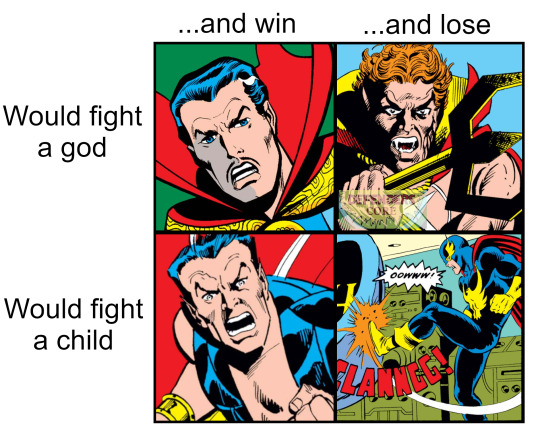
#defenders#marvel's defenders#defenders-core#marvel#doctor strange#daimon hellstrom#namor#namor the sub-mariner#nighthawk#kyle richmond
9 notes
·
View notes
Text

#defenders#marvel's defenders#defenders-core#marvel#nighthawk#kyle richmond#raymond kane#jack norriss
0 notes
Text
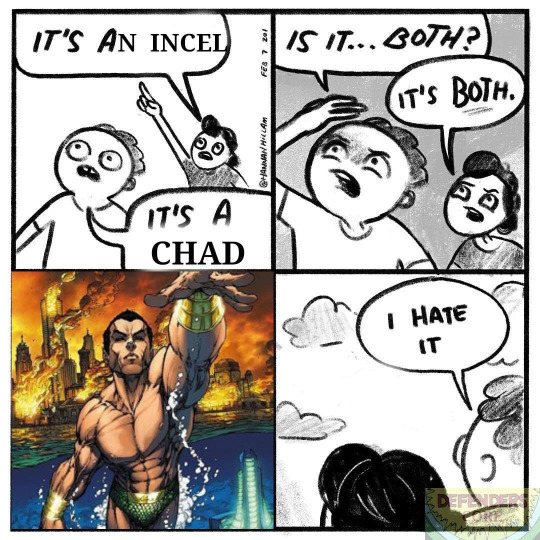
it’s been three years to the day since this absolute banger
2 notes
·
View notes
Photo
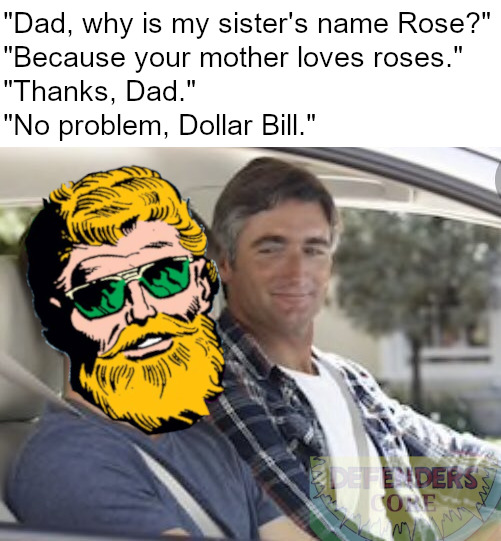
1 note
·
View note
Photo
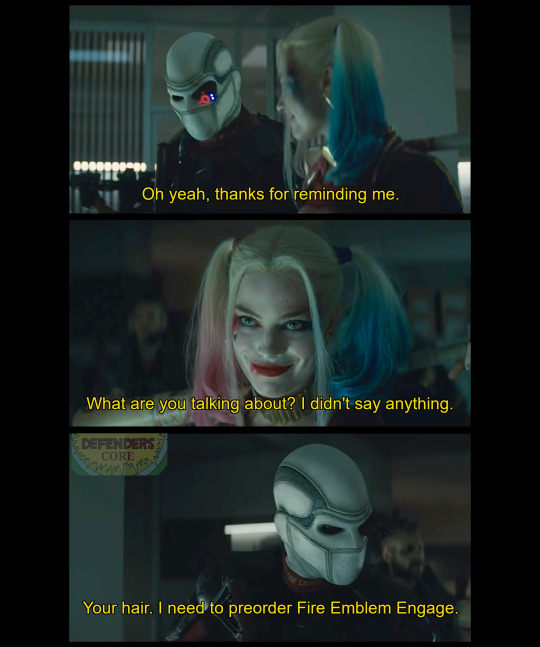
6 notes
·
View notes
Photo
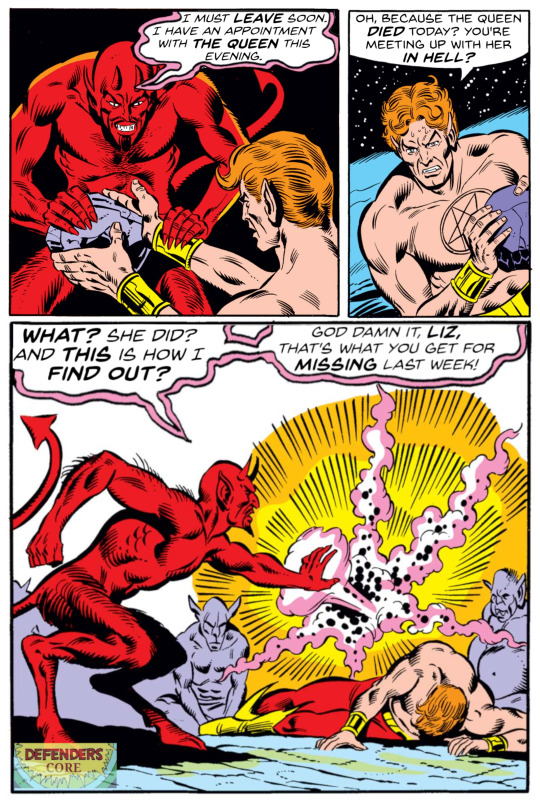
#defenders#marvel's defenders#defenders-core#marvel#Daimon Hellstrom#son of satan#queen elizabeth#queen elizabeth ii#satan
16 notes
·
View notes
Text
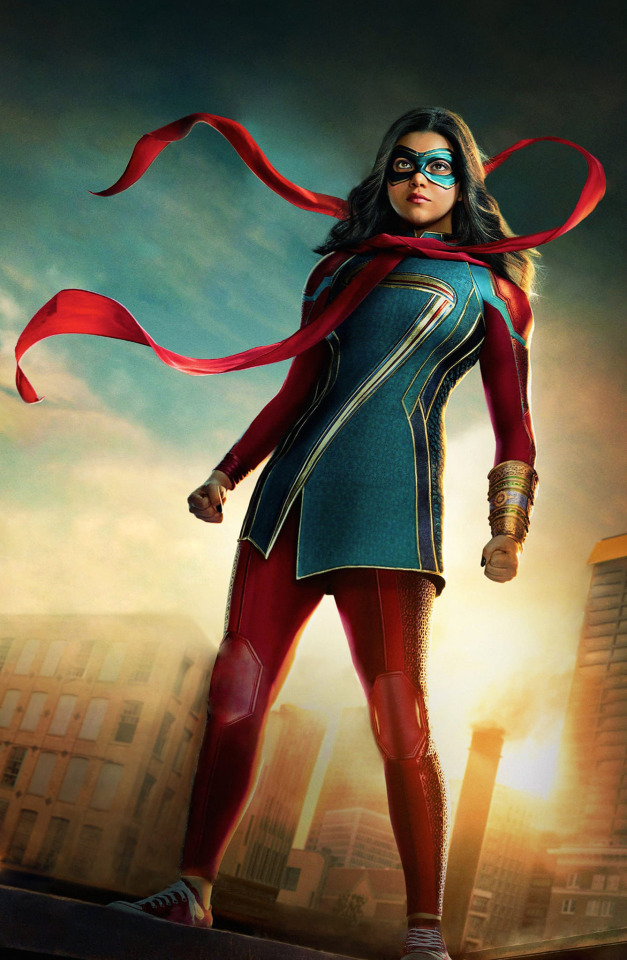
I'm gonna talk about the Ms Marvel show but I'm not gonna spoil any of it.
Ms Marvel is a very good show and a pretty bad adaptation. After episode three, it seemed like a show where the writers were given specific parameters of what must be changed from the original and were contorting themselves to try to preserve some of the story despite those parameters, but after seeing episode four, it feels more like someone had a really good, really meaningful idea for a superhero show about a Pakistani-American and was told to do what they had to do so it would fit the character who already existed. The truth is probably somewhere in-between.
I'm enjoying this show a lot, but that enjoyment is hindered by the constant anxiety of "what if they change the comics to fit this new property," which is a feeling I get when watching every superhero adaptation, but not nearly as strongly as I do with this one. It's also hard to ignore that characters created more recently are both more likely to have their stories changed in adaptations and more likely to be part of underrepresented groups, which is a....problematic confluence, even though it's certainly not a purposely malicious one. We've never gotten a comics-accurate adaptation of Miles Morales's origin story, for instance, which gives the impression - accurate or otherwise - that Marvel thinks little of his character really matters beyond his race and his costume. I'm still boiling mad about Kevin Feige's frankly gross comment that anyone who really wants stretchy arms in Ms Marvel will get that so they don't have to worry.
My biggest reason for wanting adaptations of stories is not really for myself, so much as so that those stories might reach broader audiences. If the Uncharted movie had been good, I wouldn't have gotten all that much out of it either way, but it would have been an opportunity to share Drake and Sully with people who don't play video games. I'm equal parts excited and worried about Gorr in Thor 4 because that character has an excellent story with a limited reach, as comics have a smaller audience than movies, and this is an opportunity to either introduce or misrepresent that story to a huge number of people. Similarly, while I'm glad I'm enjoying this show as much as I am, I'm also sad that this version of the character will supersede Kamala Khan: not for me, but for people who will only see her in the MCU.
Maybe some of my issues will be resolved in the last two episodes, though I don't see how that's possible this far in. Either way, though, so far this show is objectively fantastic and subjectively...complicated.
4 notes
·
View notes
Photo

I made a Youtube video about Defenders #22-25, first retelling the story and then digging into its historical context, so please check it out if you get the chance! I’m hoping to do more and make that a proper Youtube channel eventually.
https://www.youtube.com/watch?v=Aj7ILjLVm3w
#marvel#defenders#marvel's defenders#defenders-core#Nighthawk#kyle richmond#hulk#the incredible hulk#doctor strange#valkyrie#luke cage#Daredevil#Daimon Hellstrom#justin with a beard
3 notes
·
View notes
Photo
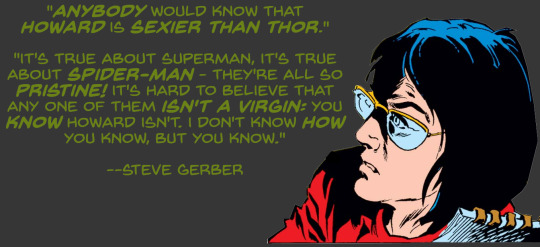
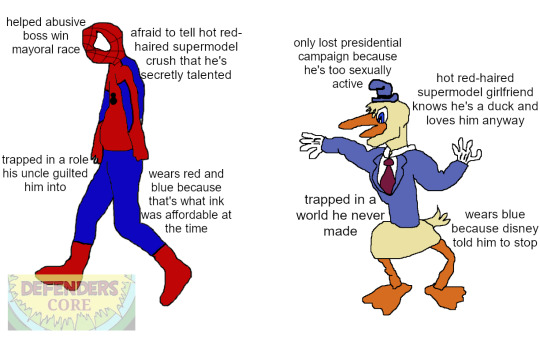
I wrote the final for my Masters about Howard the Duck and now I’m a huge Howard stan
6 notes
·
View notes
Text
I've been thinking about that Ms. Marvel trailer a lot since it dropped, and how disappointing it is that they changed her powers, especially in the way that they changed them. I've seen a lot of folks saying that the change doesn't matter as long as they get the character's personality right, and while I certainly don't begrudge anyone this completely fine opinion, or rain on anyone's parade, I do...feel this need to talk about what we lose through this change, thematically.
Ms. Marvel's origin story is a lot more low-key than...say...a Spider-Man origin. She goes to a party she wasn't supposed to, gets rejected by her white peers, gets exposed to terrigen mist, and gets powers. The moment from that story that matters, really, is the vision she gets while in the cocoon. She's spent the whole comic up until this point feeling at conflict with her family's values and customs. She loves the smell of bacon but can't eat it, she willing to put up with the barbs of the crappy cool kids because it makes her feel more "normal," she writes fanfics about superheroes and Nakia and her family don't understand why she cares about them. But then, while Kamala develops her powers, she sees a vision of Captain Marvel reciting a poem in Urdu. The superheroes in her vision discuss her reasons and repercussions for going to the party. She wanted to be accepted by her peers, even at the cost of denying her family, her culture, and her history. In the end, even that wasn't enough for her to be accepted. When Kamala breaks out of the cocoon, with her shapeshifting powers, she is wearing Carol Danvers's old costume and, tellingly, she has blonde hair.
Here, G Willow Wilson states outright the central theme of her run on her character: Kamala thinks who she is and who she wants to be are fundamentally opposed. Kamala wants to be a superhero and she wants to be accepted by the people around her, but she doesn't believe she can be a superhero as herself. The second she gets powers, she subconsciously uses those powers to imitate whiteness, because that's how she pictures superheroes. The story points out directly that this is the problem Kamala Khan's existence as a character might help redress; we fight for better representation in fiction because otherwise readers internalize who can and cannot be the protagonists of certain stories. Media as it exists is limiting. We can see, directly, how it has limited this protagonist. Now this protagonist will learn to overcome those limits and in doing so teach us the same lesson. We can't get this moment without this power. But it goes further than that.
I know MCU Kamala can't be an inhuman because reasons, but her being an inhuman sure does do a lot for this theme. Kamala's powers are core to her - written in her DNA and literally inherited from the family she feels are so limiting. She didn't have the powers bestowed on her through a wishing machine or a spider-bite. She's always been special; she's always had the ability to become a superhero. Her powers are internal to her, and, necessarily, they are LITERALLY her. She fights entirely by using her body. She cannot separate herself from her powers, which are the thing she has always wanted. A lot of folks have talked about how the stretchy powers are representative of puberty and like yeah, for sure that's part of it. But we know those powers don't go away when she grows up. Everything Kamala felt conscious about before gaining powers has become a literal source of strength. She wouldn't be able to fight for Jersey if she had different parents.
In the show trailer, I think it's....a grave oversight that her powers work in exactly the opposite way. MCU Kamala gets her powers from what I assume are the quantum bands. These powers are EXTERNAL to her. Maybe it'll be different in the show, but in the comics, if someone else wears the quantum bands, they get all the same powers. This isn't something she inherited, it's something she found. And she fights, again, externally. She shoots energy from the bands outward, not relying on herself, the part of her that the trailer suggests she is still very self-conscious about.
I think the show can still be good, obviously, but that they changed her powers - and the WAY they chose to change her powers - implies to me that much of what is core to the essence of Ms. Marvel has been misread or ignored, here. So while I'll withhold judgement until I've seen the show, I think it's fair - and maybe even necessary - that we ask why they made these changes, and how the character might need to change to accommodate them.

13 notes
·
View notes
Text
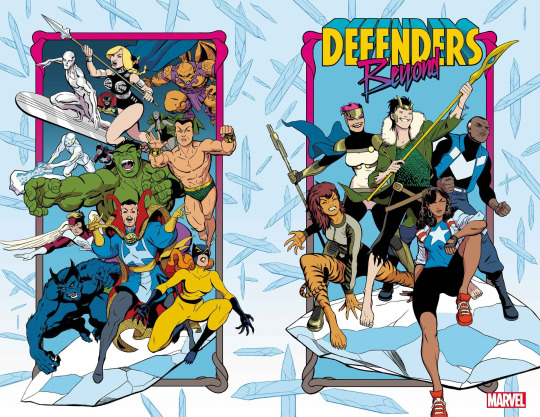
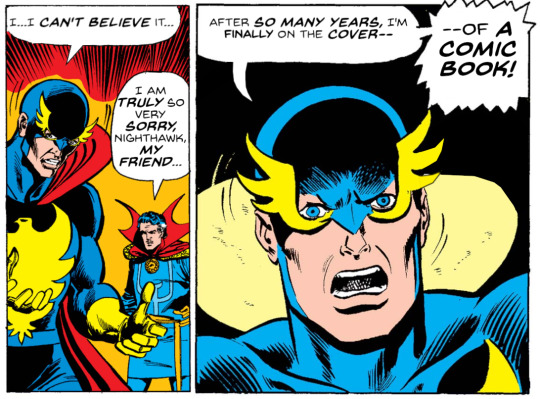
#marvel#marvel's defenders#defenders#defenders-core#nighthawk#Kyle Richmond#defenders beyond#doctor strange#monsters inc
18 notes
·
View notes
Text
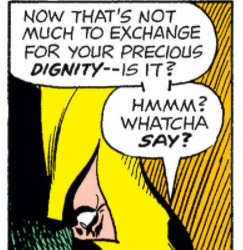
That you only meant well?
Well of course you did
1 note
·
View note
